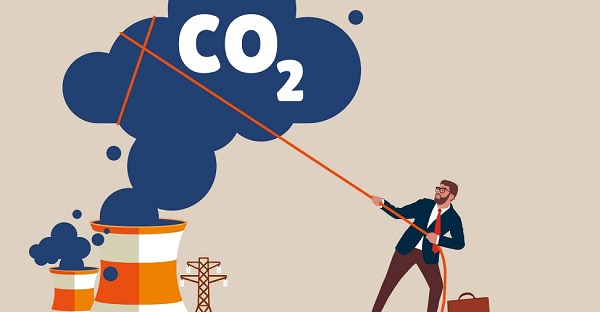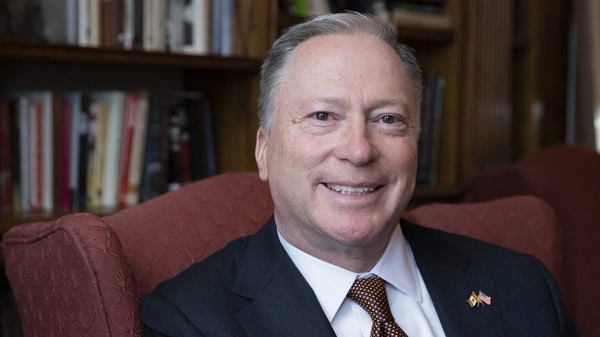Business
The big quiet bail out – Euro/Japan central banks propping up stock markets, is the US next?

You’d think that the golden age of markets, if there was one, would be something like the post WWII economic expansion era. That was pretty impressive, driven by baby boomers and the gigantic wave of consumption that enveloped them. Never before in history had parents worried so much about the outfits that New Baby would wear, and it only got crazier from there.
Fundamentally though, the late 1700s were far more earth-shaking. Not in the consumerist sense; those austere horse-travelers managed to survive somehow without the likes of either Apple or Lululemon, for example, but consider the free-market achievements of that period. The United States came into existence, a profound new experiment in governance and free(ish) markets. In academic circles, famed economist/philosopher Adam Smith coined the term “the invisible hand of the market” in his book The Wealth of Nations. It was a reference to the ability of a market economy to provide benefits far beyond those that accrue to the creator. That is, an inventor of something that becomes wildly successful enriches not only the inventor, but society as a whole. Plus, it is an indirect reference to the ability of markets to efficiently allocate capital.
We tend to forget that wonder of capital markets, particularly as the world drifts into one defined more and more by government intervention. Since the 2008 financial meltdown, governments have gone kind of berserk in attempting to keep the financial world afloat, causing markets to gyrate in increasing spirals through wild-eyed policy guidance as the dollars at stake become stupefyingly large. We no longer have economist/philosophers at the helm; we have economist/desperados who have convinced the world their alchemic ways will work, and they don’t know that it will, but they’re really really hoping.
The new breed of economist has introduced an all new Invisible Market Hand – not one that provides infinite benevolence, but one that is like a forklift driver feeling confident in his/her ability to pilot a fighter jet because the seats are similar.
The strategy of which I speak began in Japan over the past decade. After years of trying to kick start the Japanese economy in various ways, including dropping interest rates to zero, the central bank began buying up treasuries as a means of supporting debt markets. When that didn’t get things going, they took the next step and actually began buying up equities to prop up stock markets. Since then, Europe has started a similar program. And yes, you heard that right – in those jurisdictions, if stock prices fall too much, the market is prevented from self-correcting, and governments are, in effect, breaking the fingers of the original Invisible Hand.
They appear to be stepping in to keep critical sectors of the economy in good shape, and also to enhance the “wealth effect”. The wealth effect refers to how citizens tend to spend more drunkenly when they feel wealthy, and for many that means a healthy portfolio. If someone sees their retirement nest egg shrink from $100,000 to $50,000 in a severe market downturn, those people tend to lockdown spending – a wise reaction. But as we’re seeing, the world keeps turning because we are consumers, and like it or not, consumption makes our world go round. So by making those portfolios stay healthy one way or another, governments seek to put the population in a semi-drunken spending stupor in order to keep the party going. Anyone who’s witnesses a true boom economy will recognize the phenomenon – at the peak of the oil boom 6 or 8 years ago, there were direct flights from Fort McMurray to Las Vegas, and thousands of twenty-somethings were purchasing vacation properties. Suffice it to say that those days are gone.
Don’t expect the new Invisible Market Hand to bail you out if your brother-in-law convinces you to load up some hot stock tip he got from a friend who got it from a friend who got it from a friend, because the “friend” at the end of that chain will be some dubious stock promoter that may or may not end up in jail, and even panicked governments won’t save those souls.
With the new strategies for propping up markets however, we’re starting to see the lengths governments will go to in order to maintain financial stability. You’d think the mountains of debt will lead to a day of reckoning, but, emboldened by the global government response to the 2008 financial crisis, the high priests of finance are becoming more emboldened. That our fate depends so heavily on a squadron of tweedy economists is truly frightening, but we’re all in the same boat, so enjoy the ride…
For more stories, visit Todayville Calgary.
Alberta
Alberta taxpayers should know how much their municipal governments spend

From the Fraser Institute
By Tegan Hill and Austin Thompson
Next week, voters across Alberta will go to the polls to elect their local governments. Of course, while the issues vary depending on the city, town or district, all municipal governments spend taxpayer money.
And according to a recent study, Grande Prairie County and Red Deer County were among Alberta’s highest-spending municipalities (on a per-person basis) in 2023 (the latest year of comparable data). Kara Westerlund, president of the Rural Municipalities of Alberta, said that’s no surprise—arguing that it’s expensive to serve a small number of residents spread over large areas.
That challenge is real. In rural areas, fewer people share the cost of roads, parks and emergency services. But high spending isn’t inevitable. Some rural municipalities managed to spend far less, demonstrating that local choices about what services to provide, and how to deliver them, matter.
Consider the contrast in spending levels among rural counties. In 2023, Grande Prairie County and Red Deer County spent $5,413 and $4,619 per person, respectively. Foothills County, by comparison, spent just $2,570 per person. All three counties have relatively low population densities (fewer than seven residents per square kilometre) yet their per-person spending varies widely. (In case you’re wondering, Calgary spent $3,144 and Edmonton spent $3,241.)
Some of that variation reflects differences in the cost of similar services. For example, all three counties provide fire protection but in 2023 this service cost $56.95 per person in Grande Prairie County, $38.51 in Red Deer County and $10.32 in Foothills County. Other spending differences reflect not just how much is spent, but whether a service is offered at all. For instance, in 2023 Grande Prairie County recorded $46,283 in daycare spending, while Red Deer County and Foothills County had none.
Put simply, population density alone simply doesn’t explain why some municipalities spend more than others. Much depends on the choices municipal governments make and how efficiently they deliver services.
Westerlund also dismissed comparisons showing that some counties spend more per person than nearby towns and cities, calling them “apples to oranges.” It’s true that rural municipalities and cities differ—but that doesn’t make comparisons meaningless. After all, whether apples are a good deal depends on the price of other fruit, and a savvy shopper might switch to oranges if they offer better value. In the same way, comparing municipal spending—across all types of communities—helps Albertans judge whether they get good value for their tax dollars.
Every municipality offers a different mix of services and those choices come with different price tags. Consider three nearby municipalities: in 2023, Rockyview County spent $3,419 per person, Calgary spent $3,144 and Airdrie spent $2,187. These differences reflect real trade-offs in the scope, quality and cost of local services. Albertans should decide for themselves which mix of local services best suits their needs—but they can’t do that without clear data on what those services actually cost.
A big municipal tax bill isn’t an inevitable consequence of rural living. How much gets spent in each Alberta municipality depends greatly on the choices made by the mayors, reeves and councillors Albertans will elect next week. And for Albertans to determine whether or not they get good value for their local tax dollars, they must know how much their municipality is spending.
Business
Major Projects Office Another Case Of Liberal Political Theatre

From the Frontier Centre for Public Policy
By Lee Harding
Ottawa’s Major Projects Office is a fix for a mess the Liberals created—where approval now hinges on politics, not merit.
They are repeating their same old tricks, dressing up political favouritism as progress instead of cutting barriers for everyone
On Sept. 11, the Prime Minister’s Office announced five projects being examined by its Major Projects Office, all with the potential to be fast-tracked for approval and to get financial help. However, no one should get too excited. This is only a bad effort at fixing what government wrecked.
During the Trudeau years, and since, the Liberals have created a regulatory environment so daunting that companies need a trump card to get anything done. That’s why the Major Projects Office (MPO) exists.
“The MPO will work to fast-track nation-building projects by streamlining regulatory assessment and approvals and helping to structure financing, in close partnership with provinces, territories, Indigenous Peoples and private investors,” explains a government press release.
Canadians must not be fooled. A better solution would be to create a regulatory and tax environment where these projects can meet market demand through private investment. We don’t have that in Canada, which is why money has fled the country and our GDP growth per capita is near zero.
Instead of this less politicized and more even-handed approach, the Liberals have found a way to make their cabinet the only gatekeepers able to usher someone past the impossible process they created. Then, having done so, they can brag about what “they” got done.
The Fraser Institute has called out this system for its potential to incentivize bribes and kickbacks. The Liberals have such a track record of handing out projects and even judicial positions to their friends that such scenarios become easier to believe. Innumerable business groups will be kissing up to the Liberals just to get anything major done.
The government has created the need for more of itself, and it is following up in every way it can. Already, the federal government has set up offices across Canada for people to apply for such projects. Really? Anyone with enough dollars to pursue a major project can fly to Ottawa to make their pitch.
No, this is as much about the show as it is about results—and probably much more. It is all too reminiscent of another big-sounding, mostly ineffective program the Liberal government rolled out in 2017. They announced a $950-million Innovation Superclusters Initiative “designed to help strengthen Canada’s most promising clusters … while positioning Canadian firms for global leadership.”
That program allowed any company in the world to participate, with winners getting matching dollars from taxpayers for their proposals. (But all for the good of Canada, we were told.) More than 50 applications were made for these sweepstakes, which included more than 1,000 businesses and 350 other participants. In Trudeau Liberal fashion, every applicant had to articulate how their proposal would increase female jobs and leadership and encourage diversity in the long term.
The entire process was like one big Dragon’s Den series. The Liberals trotted out a list of contestants full of nice-sounding possibilities, with maximum hype and minimal reality. Late in the process, Minister of Innovation, Science and Industry Navdeep Bains picked the nine finalists himself (all based in cities with a Liberal MP), from which five would be chosen.
The alleged premise was to leverage local and regional commercial clusters, but that soon proved ridiculous. The “Clean, Low-energy, Effective and Remediated Supercluster” purported to power clean growth in mining in Ontario, Quebec and Vancouver. Not to be outdone, the “Mobility Systems and Technologies for the 21st Century Supercluster” included all three of these locations, plus Atlantic Canada. They were only clustered by their tendency to vote Liberal.
Today, the MPO repeats this virtue-signalling, politicking, drawn-out, tax-dollar-spending drama. The Red Chris Mine expansion in northwest British Columbia is one of the proposals under consideration. It would be done in conjunction with the Indigenous Tahltan Nation and is supposed to reduce greenhouse gas emissions by 70 per cent. That’s right up the Liberal alley.
Meanwhile, the project is somehow part of a proposed Northwest Critical Conservation Corridor that would cordon off an area the size of Greece from development. Is this economic growth or economic prohibition? This approach is more like the United Nations’ Agenda 2030 than it is nation-building. And it is more like the World Economic Forum’s “stakeholder capitalism” approach than it is free enterprise.
At least there are two gems among the five proposals. One is to expand capacity at the Port of Montreal, and another is to expand the Canada LNG facility in Kitimat, B.C. Both have a market case and clear economic benefits.
Even here, Canadians must ask themselves, why must the government use a bulldozer to get past the red tape it created? Why not cut the tape for everyone? The Liberals deserve little credit for knocking down a door they barred themselves.
Lee Harding is a research fellow for the Frontier Centre for Public Policy.
-

 International2 days ago
International2 days agoNumber of young people identifying as ‘transgender’ declines sharply: report
-

 Alberta2 days ago
Alberta2 days agoThe Technical Pitfalls and Political Perils of “Decarbonized” Oil
-

 National1 day ago
National1 day agoDemocracy Watch Renews Push for Independent Prosecutor in SNC-Lavalin Case
-

 Health2 days ago
Health2 days agoColorado gave over 500 people assisted suicide drugs solely for eating disorders in 2024
-

 Alberta22 hours ago
Alberta22 hours agoClick here to help choose Alberta’s new licence plate design
-

 Alberta2 days ago
Alberta2 days agoEnbridge CEO says ‘there’s a good reason’ for Alberta to champion new oil pipeline
-

 Censorship Industrial Complex2 days ago
Censorship Industrial Complex2 days agoCanada’s privacy commissioner says he was not consulted on bill to ban dissidents from internet
-

 Bruce Dowbiggin2 days ago
Bruce Dowbiggin2 days agoLong-Distance Field Goals Have Flipped The Field. Will The NFL Panic?







